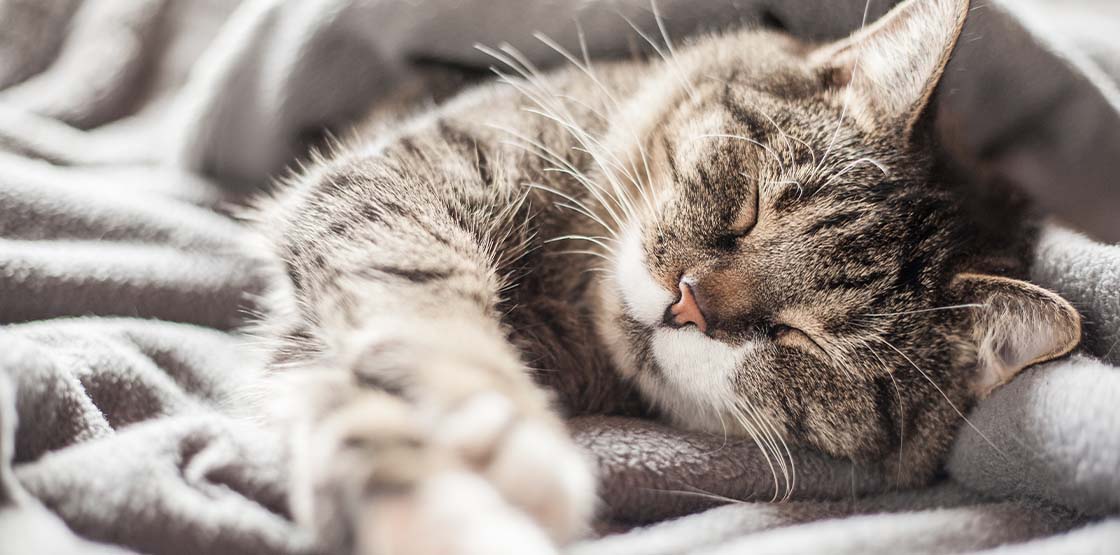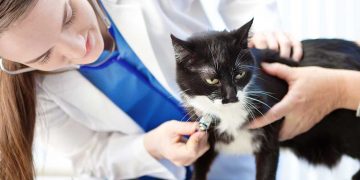Why Do Cats Sleep So Much?
If you are a cat owner you may have asked yourself “why do cats sleep so much?” Well, did you know that cats are one of the top sleepers in the animal kingdom? So, if your feline seems to spend more time sleeping than anything else, then you probably should not be too concerned. But if you are keen to find out if your kitty is sleeping more than the average cat and just how much sleep is too much, then we have the answers for you.
What Are the Typical Sleeping Habits of Cats?
Well, you can expect your cat to spend 12 to 16 hours sound asleep every day. This might seem an awful lot of sleep, but it is all needed to recharge their batteries in preparation for the next big hunt.
Even though your cat is domesticated, and you provide delicious food every day, their hunting instinct remains strongly ingrained. Then, there is also the stress that comes from being not only the hunter but also the potential prey. All this means that your cat needs to conserve their energy and ready themselves for their next hunting expedition.
What Time of Day Do Cats Sleep?
Cats are what is called crepuscular, which means their high energy times are at dawn and dusk. It’s because this is the time of day that is best for hunting. With enough light to see, but with the cover of the shadows, your cat can sneak up on their unsuspecting prey.
So, that probably explains why your cat spends so much time in the day snoozing around and then running around like a mad thing for much of the evening and early into the morning. Your cat may no longer need to hunt for her food, but just like her big cat relatives, your feline keeps to the same schedule of hunting and sleeping.
This is why cats love toys that allow them to chase and pounce; they might not be able to hunt real prey, but they can still give those instincts a good workout. Toys can also be a great way of adjusting their sleep/play routine as well, so if their preferred time for crazy play is when you want to get to sleep, invest some time in playing chasing games before that to tire them out.
Understanding the Meaning of a ‘Cat Nap’
Ever wonder where the term “cat nap” came from? Well, even though it may look as if your cat is in a deep sleep, they tend to sleep very lightly most of the time. It’s this catnapping, even when sitting up, that lets them spring to life if they sense danger. They do sleep deeply too, but that tends to only last for a few minutes and then they are back to dozing again. It is thought that this constant switch between light and deep sleep might explain why our feline friends need so much sleep.
You May Also Like:
Related Search Topics (Ads):
How Much Sleep Is Too Much?
The average sleep time for a cat is 15 hours every day, but it is not unusual for them to nap for up to 20 hours. When trying to work out if your cat is sleeping too much, you are probably the best person to make that call. That’s because if your cat is in a routine, they are fit and healthy, eating well and playing, then their sleep pattern is one that is working for them. If, however, you notice that they are suddenly not walking up till 9 a.m. for their breakfast or seem very low energy when they have always been wide awake at 7 a.m., then a quick check-up at the vets is a good idea to see what is going on.
Age and Weather
As your cat gets older, it is normal for them to sleep more and to be less active at the times of day when they used to play. Kittens also sleep more to give them the energy they need for their growing bodies and for that extra mischievousness when they are awake. Weather conditions can also cause a change in your feline’s sleeping habits with both very hot and very cold weather causing them to spend longer periods asleep.
Hypothyroidism and Sleeping Habits
Aches and pains can be a reason for your cat needing to relax more than usual, as moving around might be painful for them. Hypothyroidism is another possibility. This condition is more common in humans and dogs, but it does, on occasion, affect cats too. Symptoms include a dull coat, increased appetite and being more lethargic and less playful than normal. A blood test is usually required for your vet to make a diagnosis, but the good news is that treatment is generally successful with just the need for daily medication.
Behavioral Reasons for a Change in Sleep Patterns
Sometimes the need for more sleep can be due to behavioral reasons, so that might be if your cat has been more stressed than usual or if they are feeling anxious. House moves, relatives staying, or a new baby are all the types of events that might cause stress to your cat, and just as stress can be tiring for us, it is exactly the same for our cats. Once they have had time to adjust or when things get back to normal, they should also be back to their everyday routines.

